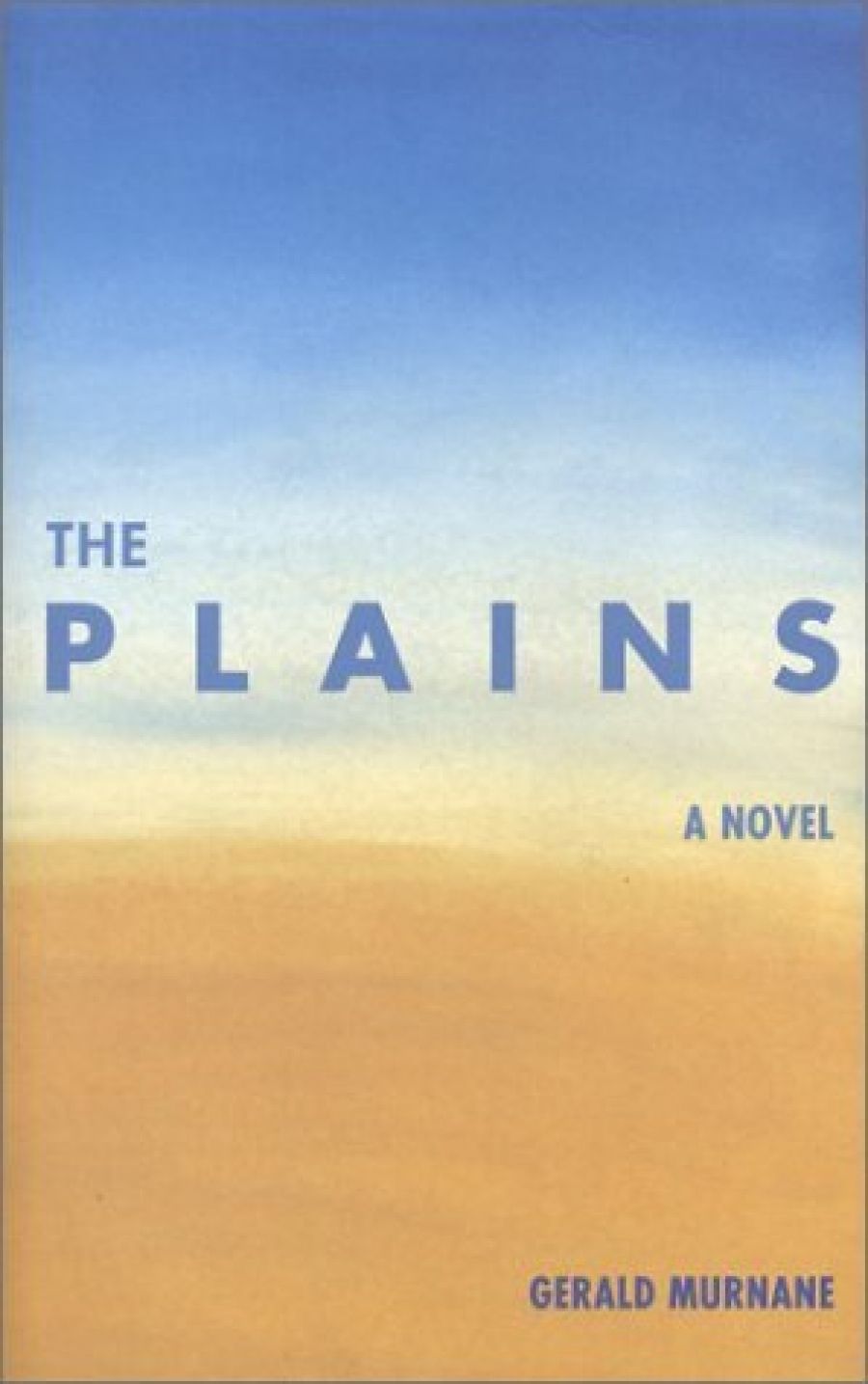
- Free Article: No
- Contents Category: Fiction
- Review Article: Yes
- Online Only: No
- Custom Highlight Text:
The Plains is a book for the critic, not the mere reviewer. It is a strange creature, to be approached with care. Several omens made me cautious. My review copy reached me three months after the date of posting.
- Book 1 Title: The Plains
- Book 1 Biblio: Norstrilia Press, 126 pp, $4.95 pb
I was warned. I suspect not many other reviewers had the same good fortune. I would hate to sound frivolous about the book, but I’m not sure we don’t have a case of the Emperor’s new clothes. The solemnity of tone with which many reviewers have treated The Plains makes me doubly suspicious.
I would suggest, in brief, that Gerald Murnane has written a first-rate, latter-day Gulliver’s Travels (Books Three and Four). The plains are the mind all right, but the plainsmen intellectuals. Murnane has no time for them. His plainsmen are distinguished by a solipsism that makes Bishop Berkeley sound the paragon of convivial gregariousness. ‘How might a man re-order his conduct,’ the plainsmen dream, ‘if he could be assured that the worth of a perception, a memory, a supposition, was enhanced rather than diminished by its being inexplicable to others.’ Et passim. The paralytic sterility of so much intellectual activity is the main target of Murnane’s satire. His concoctions of nonsense are consummately done. They hang in, just this side of unreadable.
The two most earnest pieces on The Plains have been by Paul Carter in The Monthly Review and John Tittensor in Meanjin. l have an uneasy feeling that Carter himself, with his interest in images of exploration, is an object of Murnane’s shafts: ‘Long treatises investigating the choice of images used by the authors of those provoking essays known as remembrances of the misremembered.’ Carter does not share my nervousness, but confidence in his judgement is more than jolted when he talks about ‘the beguiling simplicity of this prose’. In contradiction, I evidence the following (mere part of a) sentence.
Each behaved as though there was yet time to hear from the other a form of words acknowledging some of those possibilities that had never been realised for as long as each had despaired of arranging such things in a form of words.
As Murnane’s stodgy, humourless, and quintessentially stupid narrator says, ‘What I could not remember was the theory arrived at in the dense final paragraphs of the article’. Et passim. Pity help the reader who tries to make sense of all the nonsense in The Plains. That way lies true citizenship of Murnane’s fantasy world. I don’t know whether to laugh or cry with the author at all the solemn microscopy. Ern lives.


Comments powered by CComment